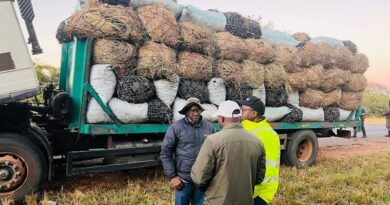Ghana Charts Path to Responsible Gold Leadership Ahead of 2025 Summit
Ghana is set to become a global leader in responsible gold production, following a powerful virtual briefing hosted by the Ashanti Green Initiative (AGI), which outlined a bold advocacy agenda for formalizing the country’s artisanal and small-scale mining (ASM) sector.
Held as a precursor to the highly anticipated Mining in Motion Summit, scheduled for June 2–4, 2025, the webinar was led by mining governance expert Charles Kwarteng Antwi, who emphasized the potential for innovation, inclusivity, and economic transformation within Ghana’s ASM sector.
“Today’s conversation goes beyond gold – it is about people, progress, and possibilities,” Antwi stated during his keynote. “Formalization is not punishment; it is empowerment.”
Ghana, producing over 130 metric tonnes of gold annually, derives nearly 35% of this from the ASM sector, which employs more than 1.1 million people across 100+ districts. Yet, informality remains a key barrier, preventing miners from accessing finance, complying with global safety and ESG standards, and entering formal markets.
The summit, organized in partnership with the World Bank, World Gold Council, and other global institutions, aims to bring together government officials, mining cooperatives, development agencies, and traditional leaders. Key attendees include H.E. John Dramani Mahama, along with delegates from South Africa, Mali, Côte d’Ivoire, ECOWAS, the African Union, and the UNDP.
The three-day event will include site visits to rehabilitated mining communities and focused working groups on traceability, responsible sourcing, and compliance with global gold standards such as the OECD Due Diligence Guidance and the LBMA’s Responsible Gold Guidance.
Antwi called for international investment to support the establishment of traceability and compliance infrastructure: “Labs, training, logistics, and digital systems are essential—and costly. But they are necessary for Ghana to become a gold standard-setter.”
AGI’s vision extends to 2030, with ambitions to ensure that Ghanaian gold is fully traceable, ethically sourced, and globally recognized.
“Ghana’s gold must power more than profits. It must power schools, health clinics, clean rivers, forest restoration, and thriving, sustainable communities,” Antwi concluded.



